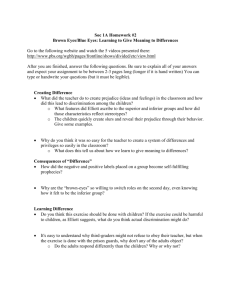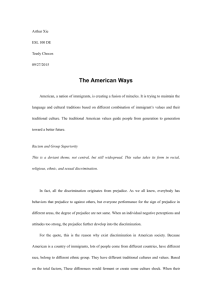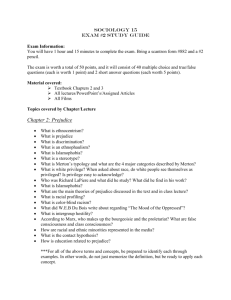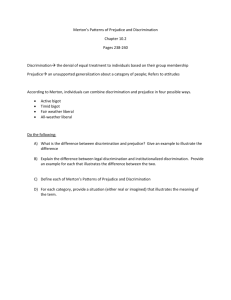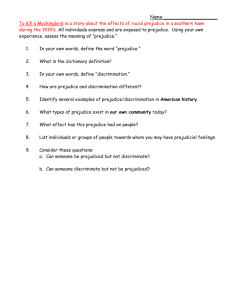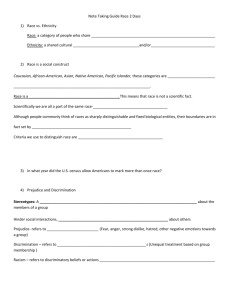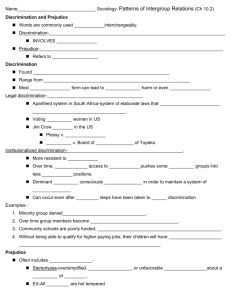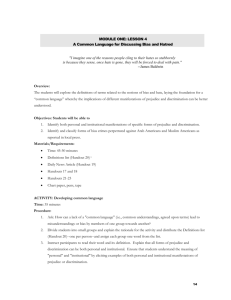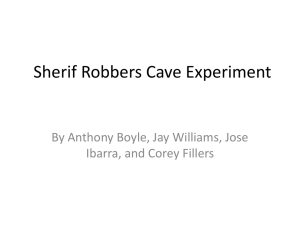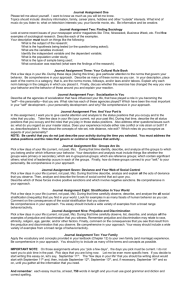DESIREE PREJUDICE ESSAY Final
advertisement
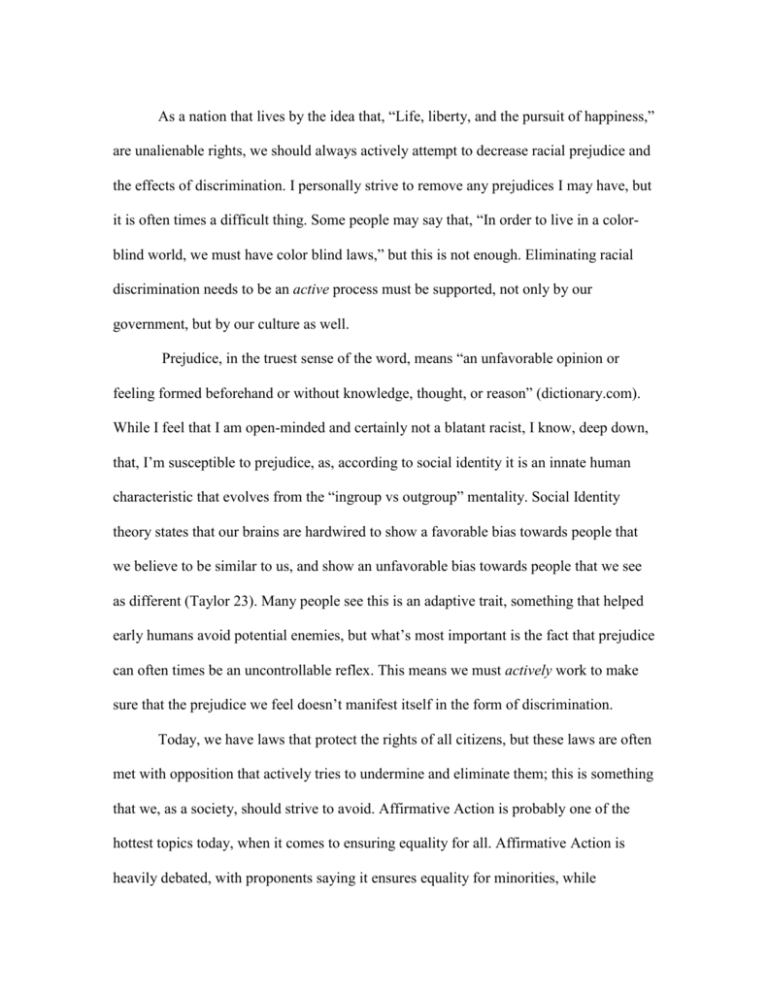
As a nation that lives by the idea that, “Life, liberty, and the pursuit of happiness,” are unalienable rights, we should always actively attempt to decrease racial prejudice and the effects of discrimination. I personally strive to remove any prejudices I may have, but it is often times a difficult thing. Some people may say that, “In order to live in a colorblind world, we must have color blind laws,” but this is not enough. Eliminating racial discrimination needs to be an active process must be supported, not only by our government, but by our culture as well. Prejudice, in the truest sense of the word, means “an unfavorable opinion or feeling formed beforehand or without knowledge, thought, or reason” (dictionary.com). While I feel that I am open-minded and certainly not a blatant racist, I know, deep down, that, I’m susceptible to prejudice, as, according to social identity it is an innate human characteristic that evolves from the “ingroup vs outgroup” mentality. Social Identity theory states that our brains are hardwired to show a favorable bias towards people that we believe to be similar to us, and show an unfavorable bias towards people that we see as different (Taylor 23). Many people see this is an adaptive trait, something that helped early humans avoid potential enemies, but what’s most important is the fact that prejudice can often times be an uncontrollable reflex. This means we must actively work to make sure that the prejudice we feel doesn’t manifest itself in the form of discrimination. Today, we have laws that protect the rights of all citizens, but these laws are often met with opposition that actively tries to undermine and eliminate them; this is something that we, as a society, should strive to avoid. Affirmative Action is probably one of the hottest topics today, when it comes to ensuring equality for all. Affirmative Action is heavily debated, with proponents saying it ensures equality for minorities, while opponents say that it attempts to avoid discriminations by using discrimination itself. I personally believe in these policies, as they actively prevent prejudice from becoming discrimination. Without affirmative action, the percentage of African Americans had many selective schools would drop to only 2% (Bowen and Bok, 1998), this would effectively ruin African Americans’ access to higher level universities, and would be detrimental to racial equality in America. Again, discrimination manifests itself from prejudice, because prejudice is often time an innate, unconscious reaction, we must continue to create programs, like Affirmative Action, that ensure equality within society. Finally, I would like to point out that I don’t mean to judge others when by saying we are all guilty of prejudice at some time or another. I am no different. When I was in high school, one night, I planned on sleeping over at my friend’s house, when I heard something that innately startled me; my friend’s older brother’s homosexual friend would be sleeping in the same room as me. I’ve always been a proponent, and supporter, of Gay marriage, and have never had any prior issue with the subject, but this situation made me vocally uncomfortable. I lashed out, before my friend’s older brother told me to calm down and “ be cool.” Thankfully, I complied, but when I woke up the next day, I felt like an absolutely horrible, and confused person. Over time, I’ve learned to accept that I was unable to rationalize, and correct, my immediate reaction to the situation. I have never seen that man since then, but I’ve never forgotten the fact that my initial reaction was so terrible. I won’t lie; that experience was the beginning of my understanding that innate prejudice can lead to discrimination, and that we must consciously act to make sure our evolutionary reactions do not lead to unfair behavior. In order to create an equal society, we must constantly be developing newer, and better methods to prevent discrimination in America. Works Cited Taylor, Donald. Theories of Intergroup Relations . 2nd ed. Greenwood Publishing Company, 1994. Print.
